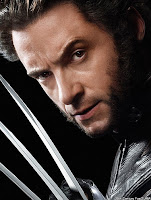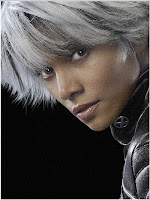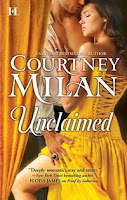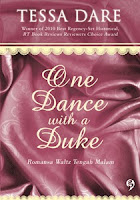I’ll
have to cheat for the last day. Otherwise my only option is Zucchini Warriors, a book I last read in
the fourth grade. So, I’ll write about John ScalZi (no, he doesn’t spell it
with a random capital in the middle). More specifically,
Old Man’s War by John Scalzi
Genre:
Science fiction
I
can’t top the publisher’s description: John Perry did two things
on his 75th birthday. First he visited his wife's grave. Then he joined the
army.
The good news is that humanity finally made it into interstellar space. The bad news is that planets fit to live on are scarce--and alien races willing to fight us for them are common. So: we fight. To defend Earth, and to stake our own claim to planetary real estate. Far from Earth, the war has been going on for decades: brutal, bloody, unyielding.
Earth itself is a backwater. The bulk of humanity's resources are in the hands of the Colonial Defense Force. Everybody knows that when you reach retirement age, you can join the CDF. They don't want young people; they want people who carry the knowledge and skills of decades of living. You'll be taken off Earth and never allowed to return. You'll serve two years at the front. And if you survive, you'll be given a generous homestead stake of your own, on one of our hard-won colony planets.
John Perry is taking that deal. He has only the vaguest idea what to expect. Because the actual fight, light-years from home, is far, far harder than he can imagine--and what he will become is far stranger.
The good news is that humanity finally made it into interstellar space. The bad news is that planets fit to live on are scarce--and alien races willing to fight us for them are common. So: we fight. To defend Earth, and to stake our own claim to planetary real estate. Far from Earth, the war has been going on for decades: brutal, bloody, unyielding.
Earth itself is a backwater. The bulk of humanity's resources are in the hands of the Colonial Defense Force. Everybody knows that when you reach retirement age, you can join the CDF. They don't want young people; they want people who carry the knowledge and skills of decades of living. You'll be taken off Earth and never allowed to return. You'll serve two years at the front. And if you survive, you'll be given a generous homestead stake of your own, on one of our hard-won colony planets.
John Perry is taking that deal. He has only the vaguest idea what to expect. Because the actual fight, light-years from home, is far, far harder than he can imagine--and what he will become is far stranger.
When I read Old Man’s War,
I had this strange feeling of delight, and it took a while to recognize it as
fulfilled nostalgia. I read books like this as a kid – moon bases, life on
Mars, space expeditions using telepathic twins for communication,
space battles against aliens, etc. I’m guessing they were written in
the forties and fifties, before the average person realized how alone we are in
our solar system. These books went out of style as hard science and
reality pushed out the entertainment factor, but they’ve made a comeback, and
they’re even better now, without the racism/sexism of books written
in previous decades.
And that's it for Z! ~breathes sigh of relief~


































